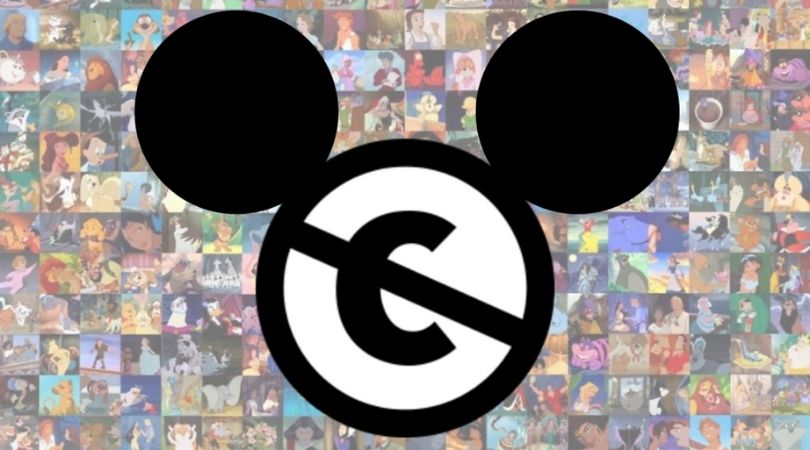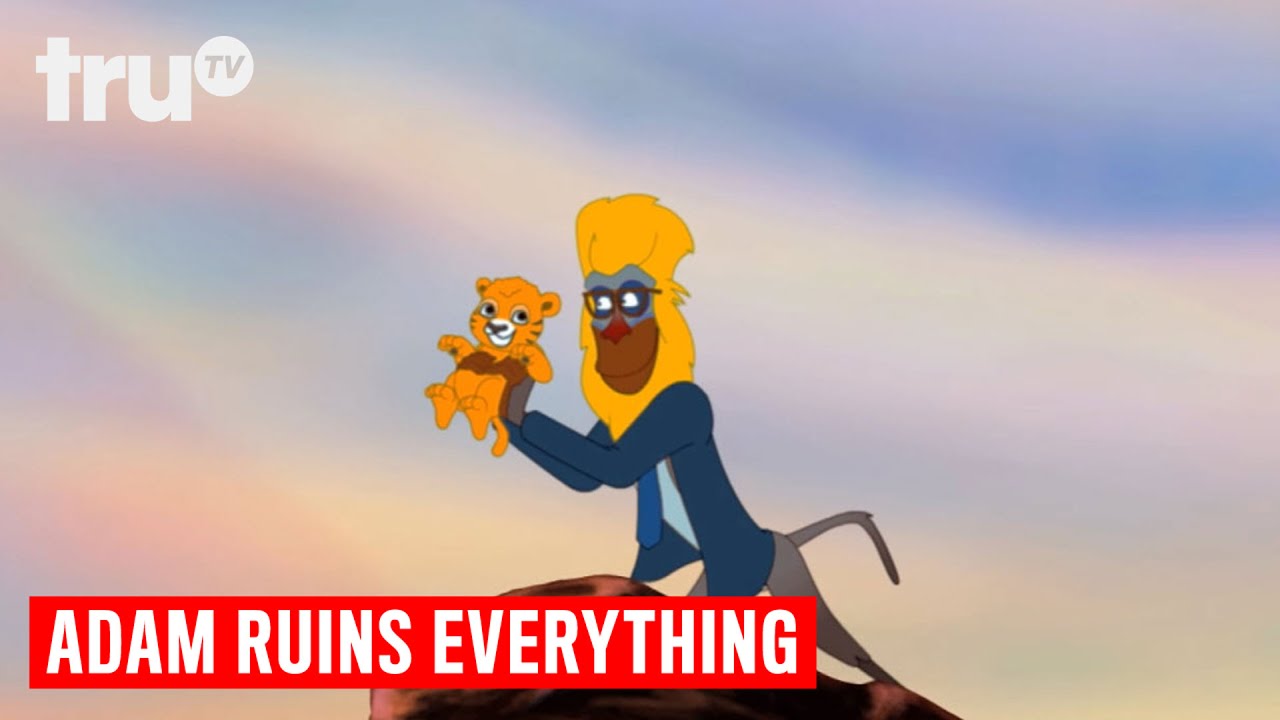News recently broke from Variety, that Disney was concerned about the upcoming film JoJo Rabbit from director Taika Waititi. The film is a dark satirical comedy that revolves around a young boy in Hitler’s army who finds out his mother is hiding a Jewish girl in their home. Executives reportedly were concerned with Fox’s upcoming projects, considering the critical and commercial failure of X-Men: Dark Phoenix and other movies released this year from the studio.
According to the report, “Halfway through one recent viewing [JoJo Rabbit] one executive grew audibly uncomfortable, worrying aloud that the material would alienate Disney fans.” Something that some fans have pointed out is ironic, considering the Mouse made WWII propaganda for the United States, including a satirical Nazi played by none other than Donald Duck, Der Fuehrer’s Face.
While these are only rumors it does ask a lot of interesting questions about Disney potentially stifling creativity and important pieces of art for the sake of either maintaining a brand or avoiding a flop – both of which can affect Disney’s stock and bottom line. Former Disney CEO Michael Eisner once said, “We have no obligation to make history. We have no obligation to make art. We have no obligation to make a statement. To make money is our only objective.” Considering Disney now, following the merger with Fox, owns nearly one-third of the entertainment industry, this should terrify us all.
Disney’s power over the entertainment industry might seem new, but in actuality, Disney’s rise to power has been a long, strategic battle often played out on the steps of Congress.
Concerns over Jojo Rabbit unearth longstanding issues surrounding Disney’s control over creative works.
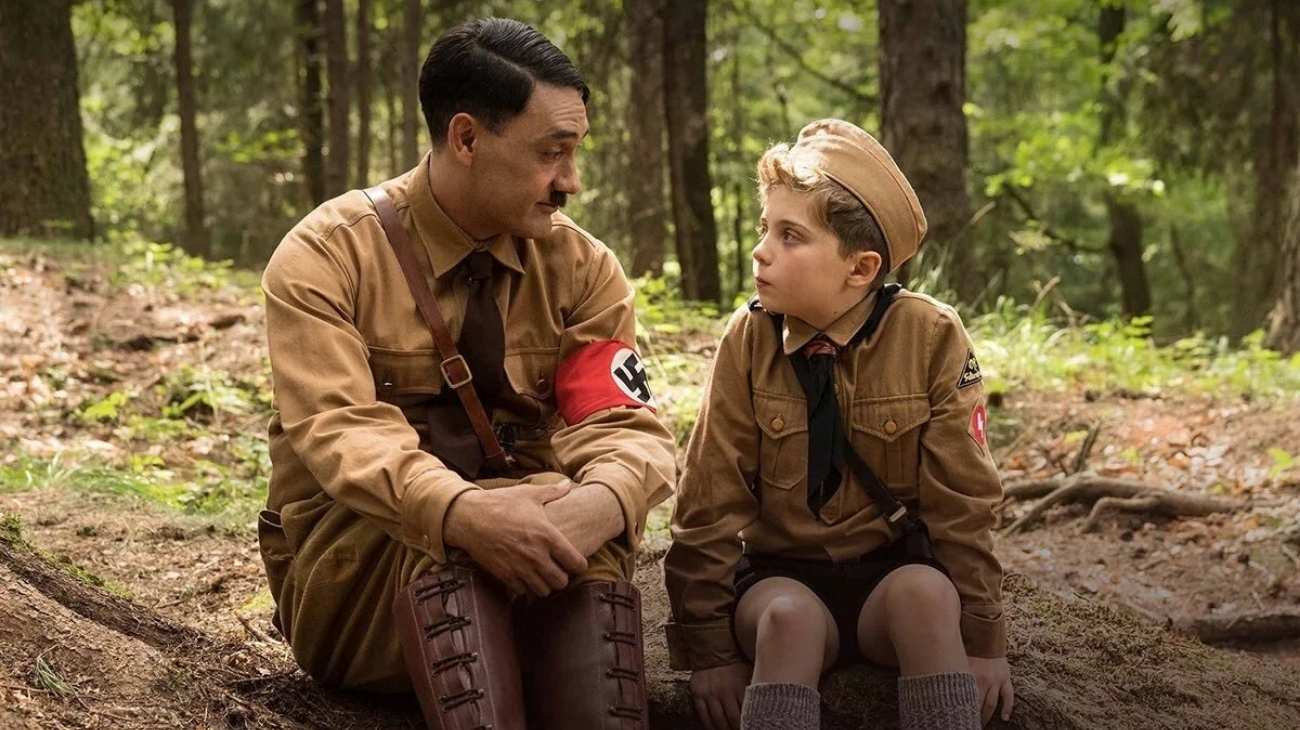
I want to preface this by saying I worked at Walt Disney World in Orlando, FL, as a Cast Member for nearly six years. I participated in two Disney College Programs, one in which I took a course on Disney’s corporate communication strategies. Disney is a company I have a complicated relationship with.
Walt Disney created Walt Disney Studios in 1923. The studios had humble roots, initially creating small animated shorts, including Mickey Mouse’s introduction in Steamboat Willie and the series The Silly Symphonies. Both are still prominently referenced throughout Disney merchandise, Disney parks, and Disney advertising – particularly Mickey Mouse.
In addition to creating Mickey Mouse, Walt Disney revolutionized the industry. After successfully creating Snow White and the Seven Dwarfs, the first animated feature film in history, Disney felt his imagination had no limit and that the impossible was always within reach.
That ingenuity and creativity remain in a lot of what Disney does: from creating revolutionary software to make Merida’s hair in Brave as flowy as it is, to engineering trackless ride systems in-house for theme park attractions. This ideal also translates into Disney’s commitment to their IPs. The company is dedicated to only showcasing characters in the best capacity possible – to a point that is nearly unprecedented.
While working for the Mouse, I used to have to be careful with my wording about where Donald Duck met in Epcot. Donald Duck meets in two locations within the park, though one does not specifically state he is there, and his meeting times often overlap. However, if you ask any Cast Member, there is only one Donald Duck, so it would be impossible for him to be meeting in two places at the same time. Needless to say, Disney cares about its characters. Disney cares so much about its characters that it has changed United States laws multiple times because of them.
Public Domain has opened doors for The Mouse, while they’ve worked hard to push them open for others.
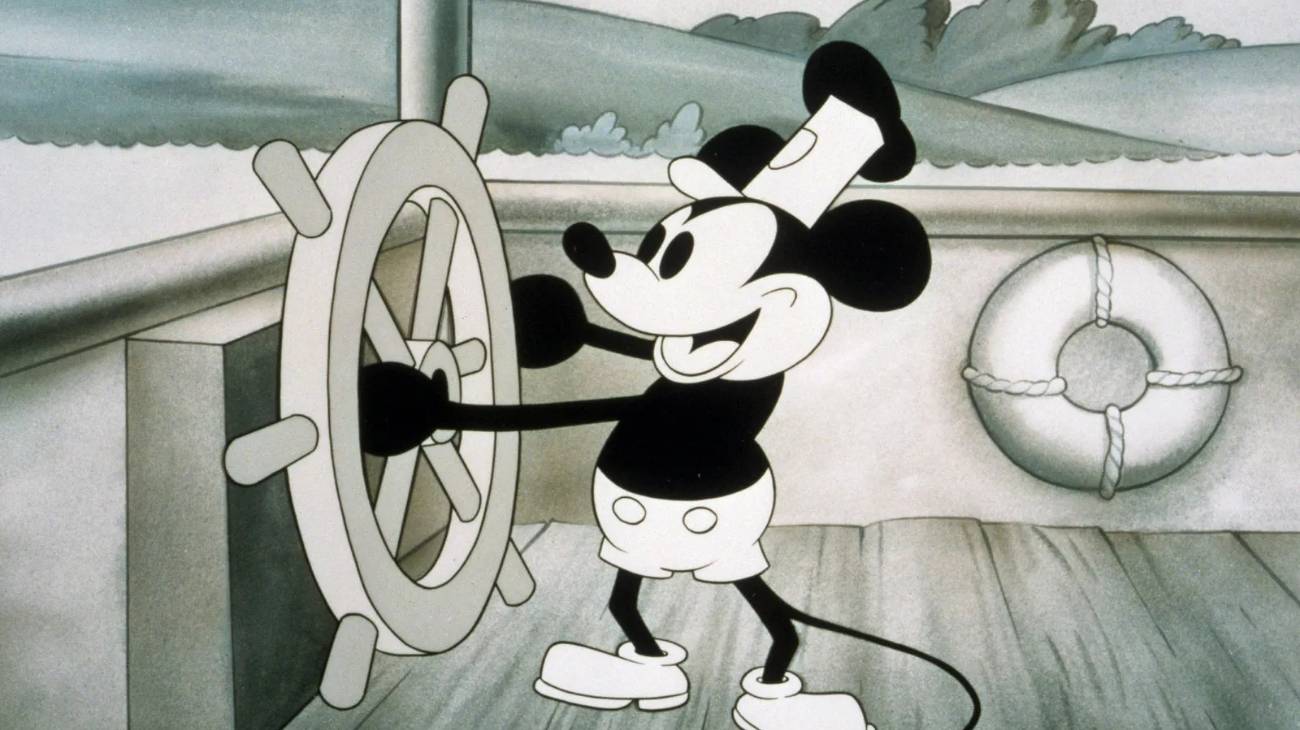
Public domain has been a hot topic issue for Walt Disney Studios for years. Long before Disney, Congress enacted the Copyright Act of 1790, which granted a 14-year term that was renewable for one additional 14-year term if the author was alive at the end of the first 14 years. Once expired, formerly copywritten material enters the Public Domain. That was later amended under the 1909 Copyright scheme, offering 28 years of protection with a 28-year renewal.
According to the Copyright Clause of the US Constitution, the point of the law is “to promote the Progress of Science and useful Arts, by securing for limited Times to Authors and Inventors the exclusive Right to their respective Writings and Discoveries.” This means the original law was written to offer protection for anything someone creates, but only for a reasonable period of time.
Disney’s best animated movies borrow ideas from the Public Domain, including Alice in Wonderland, The Little Mermaid, and Frozen. And yet, despite taking inspiration from creations that are now part of the Public Domain, Disney’s characters never seem to fall to the same fate.
Near the time Mickey Mouse was set to enter the public domain, Disney lobbied Congress to expand protections of its characters. In 1976, Congress expanded protections. The new law saw creators retaining the rights to their works for the duration of their life plus an additional 50 years.
Disney lobbied Congress again for additional protections and won – big time. The Sonny Bono Copyright Term Extension Act of 1998 lengthened the time works were protected under copyright law from their original parameters of 28 years with a 28-year renewal to “life of the author plus 70 years.” Additionally, the legislation “extends copyrights for corporate works to 95 years from the year of first publication, or 120 years from the year of creation, whichever expires first.” Currently, Mickey’s copyright protection expires in 2023, but I have no doubt that Disney will lobby Congress again.
Disney has had a longstanding legal impact on U.S. Copyright Law.
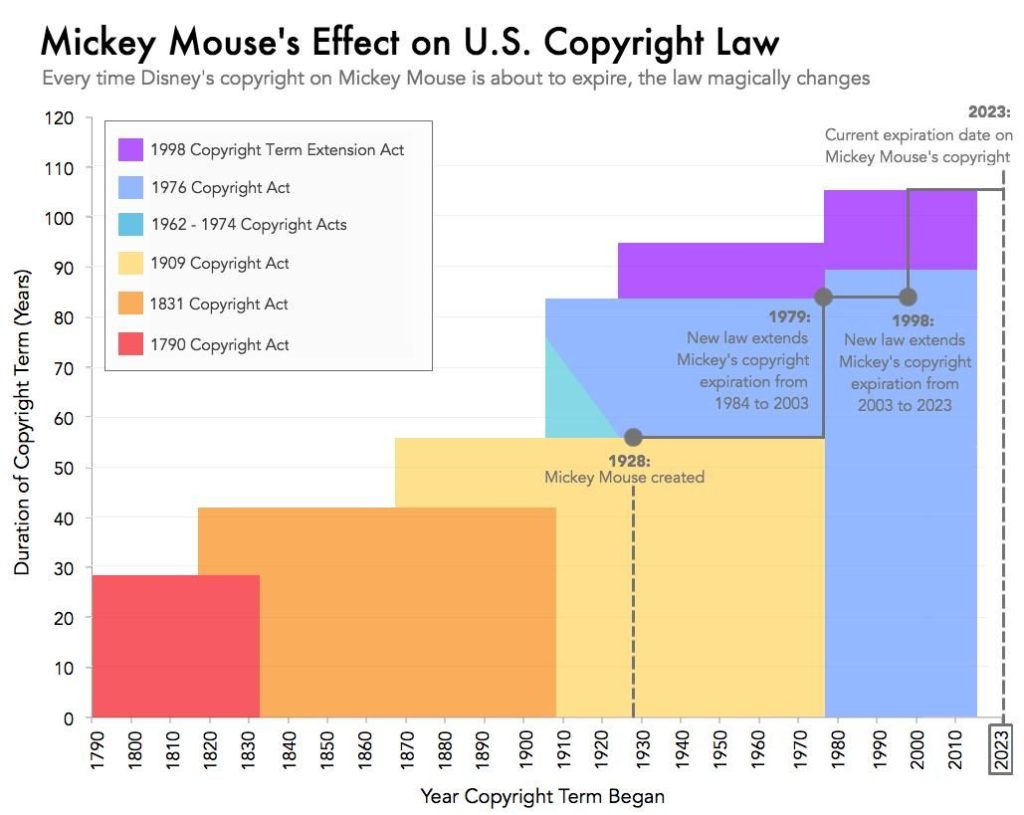
Going back to Eisner’s quote, Disney has no obligation to make art. Disney exists as a company to make money. Keeping their properties within the public domain means they will keep making a lot of money. But what does that mean for the rest of us, creators and consumers of media alike?
James Boyle, the co-founder of the Center for the Study of the Public Domain at Duke Law School, spoke about the problem on an episode of Adam Ruins Everything. There, he explains that the issue is far more reaching than just cartoons. Because of Disney’s lobbying efforts, books, movies, and scientific and scholarly articles are sitting in limbo, unable to enter the public domain. Previously, access to the past was free and legal and encouraged new ideas, artistically and scientifically speaking.
Beyond stifling new ideas, Disney’s lobbying efforts have also created major setbacks for libraries and institutions hoping to digitize the past. According to the Center for the Study of the Public Domain, “libraries, museums, historians, archivists, teachers, filmmakers, publishers, and database creators rely on the public domain…Anyone can freely restore and digitize works published before 1923, but far too many projects have had to abandon works published after 1923 because of the extraordinarily long copyright term.”
Organizations hoping to study and preserve the past cannot publish or digitize millions of pieces of media because of the copyright ownership of these orphan works, works that are still presumably under copyright, but are commercially unavailable, and the copyright owner cannot be found.
Generations are losing access to history because creations are staying in the greedy hands of corporations like Disney rather than the public. At the end of the day, while Disney is made up of thousands of creative minds, it is still a corporation and will always serve its own interests. This, unfortunately, means it will continue to fight for longer copyright protections and make safe, even at times boring choices, regarding its own content. Considering just how giant the conglomerate is now, this should frighten all of us.
Disney’s influence has always been colossal, but now, they own even more of the entertainment industry than they did the first time they went to court. More is on the line for both small-artist projects like JoJo Rabbit, which are at risk of being censored simply for not falling under Disney’s brand, and for ensuring future generations have access to the public domain. Walt Disney himself benefited from public domain when he created Steamboat Willie, Snow White, and countless other pieces of media that take characters and storylines from the public domain. Yet, Disney continues to stifle artistic expression.
Currently, The Walt Disney Company has until 2023 to figure out how to keep Mickey Mouse and other creations out of the public domain. This means we, as the public, need to call our representatives and support organizations like the Center for the Study of the Public Domain, which are fighting for our right to use creative works and preserve history.

